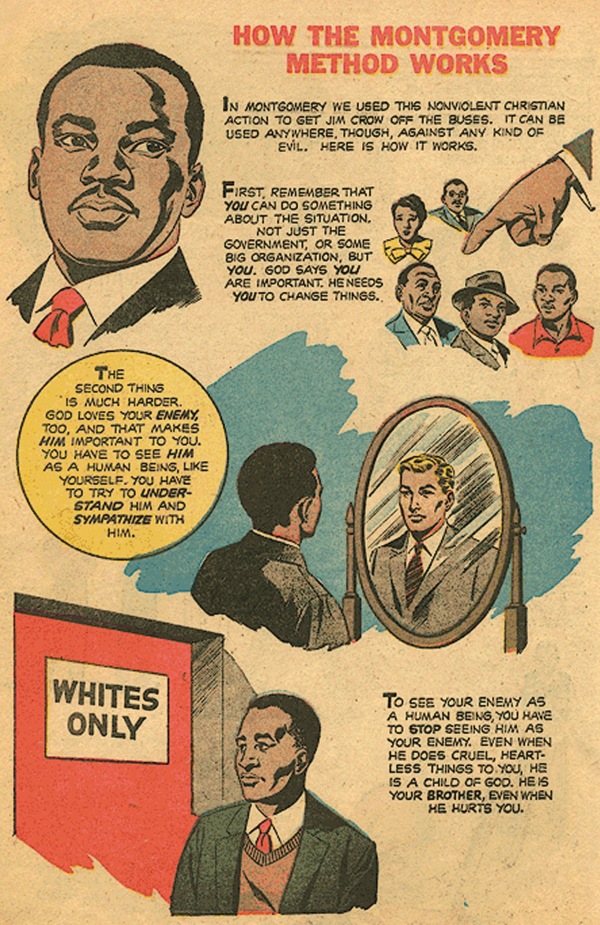TIME: From his earliest memory Martin King has had a strong aversion to violence in all its forms. The school bully walloped him; Martin did not fight back. His younger brother flailed away at him; Martin stood and took it. A white woman in a store slapped him, crying, “You’re the [n—-r] who stepped on my foot.” Martin said nothing. Cowardice? If so, it would come as a surprise to Montgomery, where Martin Luther King has unflinchingly faced the possibility of violent death for months.
The shabby, overcrowded Negro schools in Atlanta were no match for the keen, probing (“I like to get in over my head, then bother people with questions”) mind of Martin King; he leapfrogged through high school in two years, was ready at 15 for Atlanta‘s Morehouse College, one of the South’s Negro colleges. At Morehouse, King worked with the city’s Intercollegiate Council, an integrated group, and learned a valuable lesson. “I was ready to resent all the white race,” he says. “As I got to see more of white people, my resentment was softened, and a spirit of cooperation took its place. But I never felt like a spectator in the racial problem. I wanted to be involved in the very heart of it.”
As a kid, in the classic tradition of kids, Martin wanted to be a fireman. Then, hoping to treat man’s physical ills, he planned to become a doctor. Becoming more deeply engrossed in the problems of his race, he turned his hopes to the law because “I could see the part I could play in breaking down the legal barriers to Negroes.” At Morehouse, he came to final resolution. “I had been brought up in the church and knew about religion,” says King, “but I wondered whether it could serve as a vehicle to modern thinking. I wondered whether religion, with its emotionalism in Negro churches, could be intellectually respectable as well as emotionally satisfying.” He decided it could—and that he would become a minister. MORE –Feb. 18, 1957
RELATED: The Montgomery Bus Boycott
Arguably the greatest moment in 20th Century oration.

